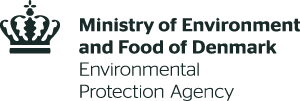Chemycal has been acquired by 3E
Learn MoreChemycal has been acquired by 3E
Learn MoreDiscover how Chemycal PRO helps you boosting your regulatory monitoring:

On 7th May in Berlin a gathering of leading scientists in toxicology and pesticides will come together to review the important recent research from Brazilian scientists and make connections between the commercial European export of chemicals banned in Europe due to health risk and their use in record levels in Brazilian food, grain and energy production.
The event titled ‘Pesticides, Poisoning and the Politics of Agrichemicals’ will feature official Brazilian figures that show that one person dies every two and half days from direct intoxication from agricultural chemicals with alarming incidences among the youngest or the population.
Professor Larissa Mies Bombardi from University of Sao Paulo who will launch the ‘Atlas of Agrochemicals and Connections between Brazil and EU’ state that, “Our health ministry shows that 343 babies from 0 to 12 months were intoxicated between year 2007 and 2014. What is of even greater concern is that for each case reported there are 50 more that go unreported. This means that in this period we probably had about 17,000 babies intoxicated”.
According to Brian Wynne of the European Network of Scientists for Social and Environmental Responsibility, “the fact that Europe permits European-based companies to sell agricultural chemicals to Brazil that are used in dangerous, sometimes lethal quantities makes this a public issue for Europe and not just Brazil. Furthermore, the reliance of European countries on the sunlight, land and labour of Brazil for goods such as soya, sugar, maize, coffee and orange juice means European citizens may unknowingly be consuming EU banned chemicals in their foods that are being produced in conditions that are dangerous to Brazilian workers and their families”.
Even though EU has the most stringent pesticide authorisation system in the world, it still takes decades to identify certain pesticides as toxic and withdraw them from the market. Glyphosate which has been identified by the International Agency for Research on Cancer as probably carcinogenic to humans is still authorised in the EU. This chemical amounts to more than one third of the total pesticides used in Brazil. As Angeliki Lysimachou of Pesticide Action Network Europe comments, “Even when a pesticide is finally identified as highly hazardous in Europe, European pesticide industry can continue selling its products outside EU to countries where children, women and men are suffering from its use and Europe may continue to import food commodities from these countries. This double standard in pesticide trade is unacceptable”.
CONTINUE READING ON www.pan-europe.info
2013 © MyChemicalMonitoring. ALL Rights Reserved. About Us | Terms and Conditions